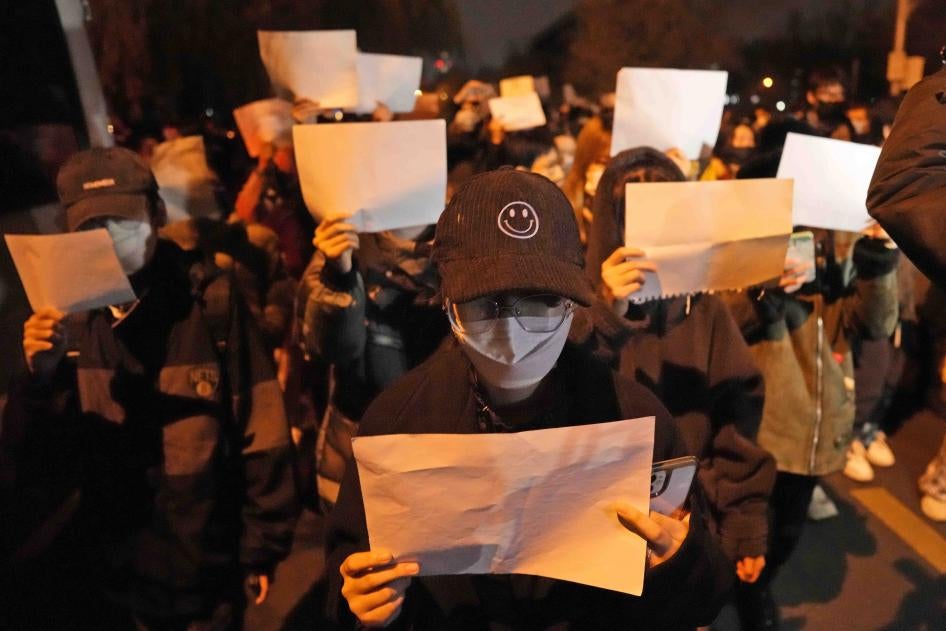After the Chinese government reversed its draconian “Zero Covid” policy and fully lifted pandemic restrictions, it is now beaming a new message into Europe: China is open for business. Beijing appears to have replaced its abrasive “wolf warrior” diplomacy of recent years with a charm offensive in Europe amidst its rocky relations with the US as evidenced by the “spy balloon” incident.
This message is beckoning to some politicians and corporations in Europe’s heartland. In November, German Chancellor Olaf Scholz brought a big business delegation to China. French President Emmanuel Macron will soon visit Beijing. Volkswagen’s executives reportedly have been visiting China, where the company has recently deepened investment. It has a factory in Xinjiang, where there have been credible reports that the Chinese authorities are subjecting Uyghurs to forced labor. In mid-February, Chinese Foreign Minister Wang Yi is expected to attend the annual Munich Security Conference.
Europe’s relationship with China is multifaceted. The European Union has defined China as a “systemic rival” but leaves open the door for engagement. Yet any such engagement should not lull Europe into complacency about human rights. As experience in Russia makes clear, conducting business with abusive regimes without attention to the rights impacts can carry considerable costs.
European countries should not forget that the Chinese government has placed sanctions on European diplomats, research organizations, and parliament members for trying to hold Chinese officials accountable for crimes against humanity in Xinjiang. Or that European citizens—such as the Swedish bookseller Gui Minhai and the British pro-democracy media tycoon Jimmy Lai—are among the many who remain arbitrarily imprisoned by the Chinese government.
They should also not forget that a sustainable bilateral relationship should be built on the foundation of mutual trust and values. Or that the real beneficiaries of close ties should be the many people in China who support democracy and basic rights, as demonstrated by the nationwide protests two months ago.
The Chinese government’s charm offensive does not change the fact that its rule is authoritarian, that under Xi Jinping, it has dramatically deepened repression on the Tibetan plateau and in Xinjiang, that it meticulously surveils and censors people throughout the country, and that it has dismantled Hong Kong’s freedoms. The government’s long arm extends to Europe in the form of surveillance and harassment among the diaspora. It has also sought to protect itself and other rights violators from international scrutiny, while relentlessly trying to tear down the international human rights system.
The severity of these abuses makes it hard to justify a new era in Europe-China relations. The situation is reminiscent of that following the 1989 Tiananmen Massacre: after a period of sanctions on the Chinese government, foreign governments rebuilt their ties to Beijing while doing little to seriously advance human rights in the country. Western politicians told themselves then that as China’s economy grew, so would its middle class, and with it, political freedoms. History proved them wrong.
Now some European officials are similarly calling for priorities premised on a thaw in relations.
Is there any alternative? The answer is already available: make plans to reduce dependency on a powerful, unreliable, unaccountable government, and to tackle Beijing’s growing assault on human rights both domestically and in its foreign policy. This is what the Greens are reportedly trying to get the German government to do with its draft China Strategy.
The German government should also ensure that upcoming European Union bills —one on human rights due diligence for businesses and another on banning goods made through forced labor from entering the EU market—are as strong as possible. The laws should include the possibility of region or product-specific bans, which can then be used to bar goods sourced from or made in Xinjiang.
Finally, Germany and the EU should strengthen efforts to push the United Nations Human Rights Council to formally discuss China’s sweeping rights violations. In an unprecedented—and razor thin—vote in October, the council got very close to securing a discussion of the human rights crisis in Xinjiang.
Europe has an opportunity –with Russia’s war in Ukraine as a constant reminder—to show courage and leadership in becoming a stronger advocate for human rights in China and focus on moving toward a liberating future when its reliance on powerful, abusive governments will trouble it no more.









